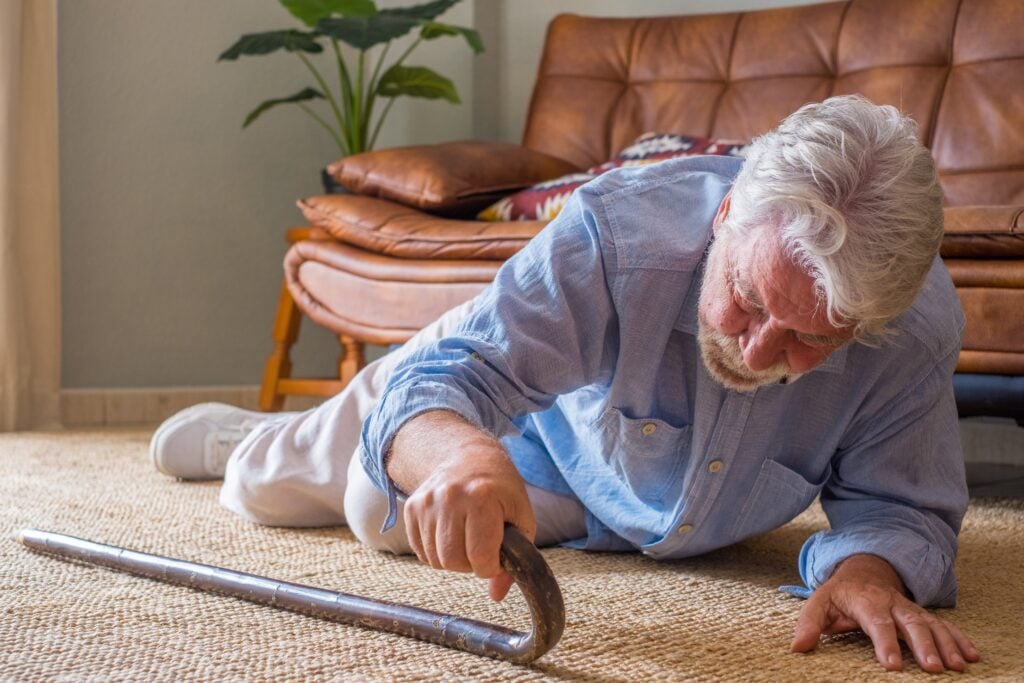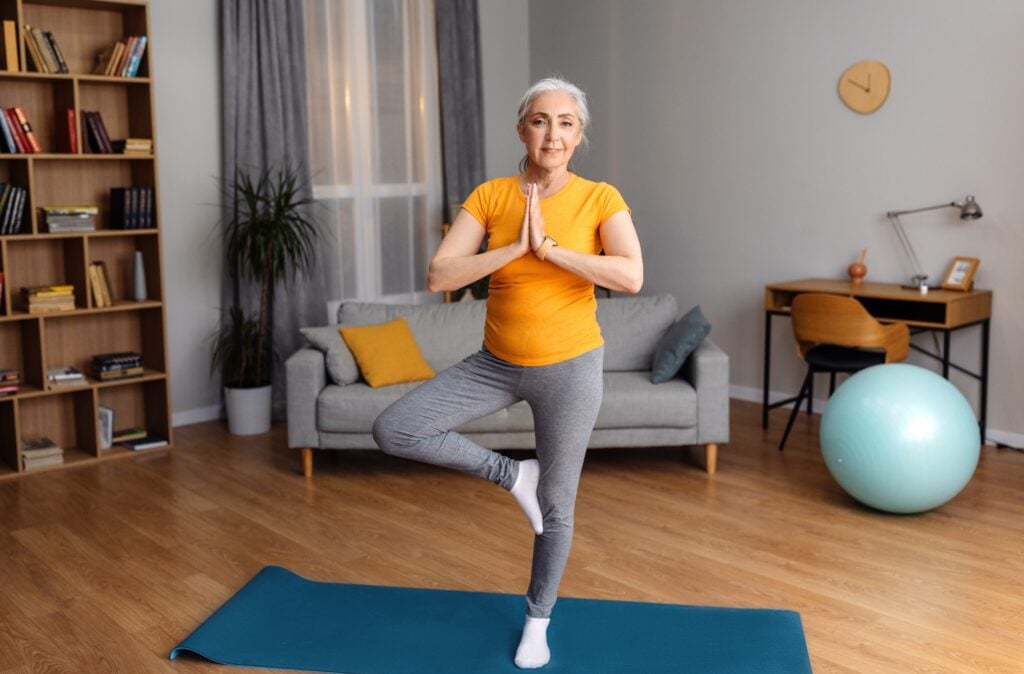If you’re worried about losing control as you age, these 12 powerful steps will show you how to stay independent and strong.

Are you terrified of losing control as you get older? You’re definitely not alone, and that fear can feel overwhelming at times. It’s natural to wonder what life will look like when you’re no longer able to do everything you once could. The uncertainty can creep into your thoughts and make aging seem like a long, slow march toward helplessness. But it doesn’t have to be that way.
There’s good news—and it’s worth holding onto. By taking clear, meaningful actions today, you can stack the odds in your favor for a strong, capable future. Staying independent is possible when you build habits that support strength, resilience, and confidence. Every choice you make now becomes a foundation for the life you want to keep living, on your own terms.
1. Embrace Daily Exercise to Keep Your Independence

Physical strength is one of the most powerful tools you have to protect your independence as you age. It’s not about becoming a marathon runner or lifting massive weights—it’s about staying mobile, flexible, and strong enough to handle everyday life. Simple activities like walking, stretching, and light strength training can keep your muscles active and your joints healthy for years to come, as stated by experts at HelpGuide.org.
Consistency is the real secret weapon here. Find activities that feel good to your body, whether that’s a brisk stroll through the neighborhood, a low-impact water aerobics class, or a few gentle yoga poses each morning. Make exercise a daily ritual, like brushing your teeth, and watch how it preserves your energy, balance, and confidence over time.
2. Get Serious About Balance—It’s More Important Than You Think

It’s easy to overlook balance until something bad happens, like a stumble or a fall. Yet building balance is one of the smartest ways to stay independent and safe. Every small effort you make now—standing on one foot, practicing heel-to-toe walking, or joining a beginner’s tai chi class—strengthens your body’s ability to stay upright and in control, as mentioned by Dr. Andrew E. Budson at Harvard Health Publishing.
Falls are one of the leading causes of serious injury for older adults, but many of them are preventable with a little daily practice. Add balance exercises into your routine the same way you would brushing your hair or making coffee. By sharpening your balance skills today, you’ll be better equipped to move confidently through tomorrow.
3. Start Building a Reliable Support Network Now

You don’t have to face the challenges of aging alone, and you shouldn’t try to. A strong network of supportive friends, family members, neighbors, or community groups can make all the difference when you need a little extra help, writers at Sanitas Medical Center reported. Even simple things, like having someone you can call if you need a ride to the doctor, can lift a huge burden off your shoulders.
Building these connections takes time and care. Start by nurturing your current relationships—schedule regular catch-ups, offer to lend a hand when you can, and stay involved in your community. When you cultivate genuine bonds, you’re creating a safety net that’s there when you need it most, offering both practical help and emotional support.
4. Learn Essential Tech Skills to Stay Independent

Technology can feel intimidating at times, but it’s also one of the greatest tools for maintaining your independence. Learning to use basic apps and services—like online banking, grocery delivery, ride-sharing, and telehealth appointments—means you can manage many aspects of your life without needing to rely heavily on others.
Start small. Master one or two new tools at a time, and don’t be afraid to ask for help when you need it. A grandchild, neighbor, or even a local class can show you the ropes. As you build confidence with technology, you’ll open up more ways to stay connected, informed, and in control of your day-to-day living.
5. Simplify Your Living Space to Stay Safe and Stress-Free

Your home should be your sanctuary—not a source of danger or frustration. Over time, clutter and poorly placed furniture can create serious hazards, making it easier to trip, fall, or simply feel overwhelmed. Simplifying your space means making it easier to move around freely and safely while creating a calmer environment for daily living.
Start by organizing essential items within easy reach and removing things that no longer serve you. Think of this as a loving act of self-care. A cleaner, simpler space supports your independence by minimizing risks and maximizing your ability to handle your own needs with confidence and ease.
6. Set Up a Health Routine You Can Stick With

Health maintenance isn’t just about going to the doctor when something feels wrong—it’s about staying on top of your wellbeing every day. Having a simple, reliable health routine that includes regular check-ups, medications, exercise, and nutritious meals helps you stay ahead of potential issues before they become major problems.
Build your routine into your life until it becomes second nature. Use reminders, create lists, or even involve a friend or family member for support if needed. Taking proactive ownership of your health gives you more control over your future and helps you stay vibrant, independent, and in charge of your own body.
7. Face the Fear and Create a Care Plan

It’s not easy to think about needing help someday, but creating a care plan doesn’t mean you’re giving up control—it means you’re protecting it. A thoughtful plan outlines your wishes for care if you’re ever unable to speak for yourself and ensures that your preferences are known and respected.
Start with a simple conversation with loved ones or a trusted advisor. Write down your wishes regarding medical treatment, living arrangements, and who you would want to help manage your affairs if necessary. Taking these steps gives you power over your future, helping you face the unknown with greater peace and confidence.
8. Make Financial Planning a Top Priority

Financial independence and personal independence often go hand in hand. When you know you have a financial plan in place for medical expenses, home modifications, or even occasional help around the house, you feel more secure about your future. Money can’t solve everything, but having resources ready can prevent unnecessary dependence.
Talk to a financial planner if you can, or start researching budgeting strategies on your own. Build a clear picture of your savings, your expenses, and what you might need down the road. Having a roadmap gives you options—and options are the true foundation of lasting independence.
9. Cultivate a Problem-Solving Mindset to Handle Aging’s Challenges

Life will throw challenges your way—that’s a guarantee. But it’s not the challenges that define you; it’s how you respond to them. Cultivating a problem-solving mindset means meeting obstacles with curiosity and creativity instead of fear. When something unexpected happens, you ask, “What can I do about this?” instead of freezing up.
This attitude keeps you flexible, resilient, and empowered as you age. Try approaching each small challenge as practice. Lost your glasses again? Solve it by creating a designated spot for them. Worried about declining mobility? Research solutions and take small steps now. Each win builds your confidence and prepares you for whatever lies ahead.
10. Stay Social—Your Mental Health Depends on It

Loneliness can creep in quietly but have devastating effects on your mental and physical health. Staying socially engaged keeps your mind sharp, lifts your mood, and helps you maintain a sense of purpose and belonging. A strong social life isn’t just about fun—it’s a vital part of staying independent and emotionally healthy.
Look for ways to stay involved with people you care about or seek out new connections. Join a club, volunteer for a cause you believe in, take a class, or simply call a friend for a chat. Every meaningful interaction you nurture strengthens your safety net and makes your life richer and more resilient.
11. Take Charge of Your Diet for a Stronger Body and Mind

Food is fuel, and the right fuel keeps your body strong, your mind sharp, and your energy levels high. Taking charge of your diet means choosing foods that nourish you rather than drain you. A balanced diet with plenty of vegetables, lean proteins, healthy fats, and whole grains can make a real difference in how you feel day-to-day.
Small changes can have a big impact. Swap out sugary snacks for fruits, include leafy greens at every meal, and stay hydrated. These simple shifts support everything from bone strength to cognitive clarity, helping you stay capable, vibrant, and ready to face the challenges of aging head-on.
12. Keep Learning—Challenge Your Mind Every Day

Your brain craves stimulation, and continuing to learn new things is one of the best gifts you can give yourself. Lifelong learning helps you stay sharp, curious, and engaged with the world. Whether it’s trying a new hobby, picking up a new language, or even just solving a daily crossword puzzle, the act of learning strengthens your mind.
Make it a point to challenge yourself regularly. Step outside your comfort zone and pursue something that excites you or piques your interest. A strong, agile mind reinforces your independence, keeping you confident, capable, and fully alive at every stage of life.
